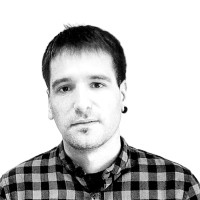Nothing is going to change here
Biopolitical technologies have regulated the response to COVID-19 in Southern Europe. Public care measures, especially disciplinary ones, have aimed at the house confinement of the entire population. The place of residence is at the heart of the economy of the consumption of tele-consumption and of the production of tele-production, configuring the individual household as a space for cyber-surveillance, an identifiable place on a Google map, or a simple location where a drone can monitor. We have seen that the slogans of the majority of the presidents have been published following the logic of the war narrative: “We are at war”, “we will overcome”, “we do not leave the house”, the commands “continue teleworking”, have been submissive measures to increase social control. Through mobiles and laptops, we have visualized the cavity of our houses as the antecedent of the lightened prison of the future, a contemporary hyper-connected fortress.
Surely, even if unconsciously, we are reproducing the model of the neoliberal system, now that the health crisis has forced us to do so. The mission of the neoliberal government is to put politics at the service of a market management, provoking the outsourcing of public services and welfare and constantly betting on a total privatization of social services. It is the neoliberal realm that moves the financial system and focuses on the inclusion of market law as a fundamental law for life.
"The best way to deal with a crisis is to transform the crisis into a new opportunity, to weave networks of communities that have been built in the confinement and to build them upward"
Now, more than ever, it is necessary to create new strategies of emancipation and resistance to initiate antagonistic processes driven by the neoliberal system. Because they cannot come from the restriction of civil rights and freedoms, but from the equality of competences of all living beings on the planet, but from a protection pact that guarantees biodiversity, democracy, coexistence and care for all human beings. It will now be essential to start the processes of democratic and socio-political recovery in each place.
The disaster caused to nature has revealed the limits of our civilization, we need a reflection on a more balanced and egalitarian world, betting on life as the strongest social fabric, building community from house to house, from neighborhood to neighborhood, from village to village. Undoubtedly, the best way to deal with a crisis is to turn it into a new opportunity to recognize a sovereign community that wants to weave networks of communities that have been built during confinement and to build them in an upward direction. It is time to move from fear (first, from fear of contagion) to Community responsibility (first, from guilt for being different) and from subordination (from subordination of the hegemonic state), to Community responsibility, to bravery, the best way forward, now as a way of constructing sovereignty. The risk of life, as the pandemic has shown us, is the condition of our life.
Responsibility after the pandemic, beyond personal attitude, is fundamentally political, in favor of what characterizes us to be responsible, and in the responsibility of what unites us, assuming all responsibility for the property of the world we share. The production work of the community, as a public space for narrative and action, is also a narrative space to answer key questions. From this new citizen property created by the pandemic can be born a humanity, a power and a power of equitable redistribution of goods, deepening democracy and firmly opening the path of social justice.
"The model of unlimited growth of global civilization that wants to regulate universally to build a new sovereignty is opposed to the will of the local community.
The desire for community that derives from the productive attitude of the community consists in the empowerment for the regeneration of transformative and creative intelligence. Today, building community is building from oneself and from others, that is fundamental. Delving deeper into the very root, building community, because it is the main way to deal with neoliberalism, because if it is curbed, it must be done from the construction of the community. The construction of the community as a permanent and constant activity of the creation of humanity, an endless task from generation to generation.
Clearly, in the light of what has been seen and experienced in this pandemic, the clash between neoliberalism and democracy is irresistible. In this sense, in order to build a new sovereignty, the model of unlimited growth of global civilization, which is intended to regulate universally, is opposed to the will of the local community, the need to build the global relationship that we live on other warms. We have already said that the law of the market, on the road to becoming the main law of life, in order to protect itself from the uniformity of the neoliberal mass, needs a common welfare and a priority public interest. This foundation is fundamentally based on the theoretical matrix of popular will, as explained by Laclauk, his will and will to build community. It is the starting point for building a political relationship of equality that admits to the community to open its way to self-awareness. Now we have the need to recognize the new political subject that is in the aftermath of the collective construction of the community, if something is going to change here.
Bidali zure iritzi artikuluak iritzia@argia.eus helbide elektronikora
ARGIAk ez du zertan bat etorri artikuluen edukiarekin. Idatzien gehienezko luzera 4.500 karakterekoa da (espazioak barne). Idazkera aldetik gutxieneko zuzentasun bat beharrezkoa da: batetik, ARGIAk ezin du hartu zuzenketa sakona egiteko lanik; bestetik, egitekotan edukia nahi gabe aldatzeko arriskua dago. ARGIAk azaleko zuzenketak edo moldaketak egingo dizkie artikuluei, behar izanez gero.
Sare Herritarrak antolatuta, pasa den urtarrilaren 11n Bilboko kaleak bete zituen manifestazio jendetsuaren ondoren, berriz sortu da eztabaida, euskal presoei salbuespen legeriarik aplikatzen ote zaion. Gure iritzia azaltzen saiatuko gara.
Espetxe politikan aldaketa nabarmena... [+]
Duela gutxi think tank izateko jaioa omen den Zedarriak bere 6. txostena aurkeztu zuen. Beren web orrialdean azaltzen dutenaren arabera, zedarriak ebidentea ez den bidea topatzeko erreferentziak dira. Hots, hiru probintzietako jendarteari bidea markatzeko ekimena. Agerraldi... [+]
The time has come for us to enrol in schools in the Basque Country for the 2025-26 academic year, and in many homes the youngest of the household will take a new step soon, in September, which is schooling. Proud of the Basque Public School The members of Topagune are firmly... [+]
Since the adoption of the new Education Law for Álava, Bizkaia and Gipuzkoa, we are hearing/reading again and again that education will be free from now on. We have listened to different actors, including the Department of Education, and in the interviews we offer to the media,... [+]
At the beginning of the month he did III. Congress in Pamplona. It is said to be the “ordinary congress” that serves to draw “non-ordinary conclusions”, or at least that is how they have received Zutunik in the paper, proposed by the leadership and unanimously approved... [+]
There are many ways to gain power; not all are beautiful. There are those who want to divide the power and the responsibility that it entails with it, who seek authority. Others have a lot of respect for him and the fact that each step is so measured makes them unable to make a... [+]
A conference for architects has just been held in Madrid to discuss the crisis of the professional architect. They have distinguished the traditional and contemporary way of being an architect. What is traditional? From the epic architect who appears in The Brutalist, where... [+]
On February 3rd, the time has begun to pre-enroll our children and young people in schools, and as every year we would like to remind you why we do not think it is a good idea to enroll them in religion. Last year we finished the article saying that “many of you will be... [+]
From the Association of Parents of the Instituto Arratia Small Tram we want to encourage reflection on the use of screens in the learning community.
Lately there is a lot of concern about the impact of screens on children and adolescents. This responsibility extends from... [+]
Bai, bai, holaxe. Ez naiz harago joatera menturatzen. Pleonasmo bat dela? Tautologia bat agian? Baliteke, baina egia-oste deitzen dioten garai honetan, oinarri-oinarrizko egitateak beharrezkoak dira. Begira, bestela, “Ez da ez!” lelo indartsuari. Bagenekien hori... [+]
I had a friend who worked at Porcelana Irabia until they closed, and every time we went to a restaurant or a bar he looked at the mug and the ass of the dish to find out where the piece was made. I do the same thing when I go to the fairs of old things: I look where it is made,... [+]
Azken boladan gero eta gehiago entzuten dugu gazte askok etxebizitza erosteko ahalmenik ez dugula. Batzuetan, badirudi ez dagoela beste gairik; egia da gai serioa dela. Niri neuri ere, 31 gertu izan arren, oraindik pixka bat falta zait neurea izango den etxebizitza lortzeko... [+]
An ad jumps on my mobile in a long time. He promises to color my world. They say that with this app I will be able to buy like the millionaires. Cheap products, very cheap, even free. They have played on the marketing target that the sociological historical moment demands. This... [+]
There are concepts that appear everywhere during certain periods, which also become mantras. They appear to us in a positive and necessary way, without too much debate and without thinking about them. It seems to me that one of these mantras is internationalization, which has... [+]















